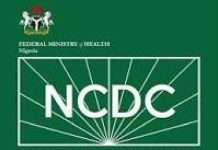Scientists from the University of Leicester and Wythenshawe hospital, Manchester, have shown that semen donations taken from men after they have died should be allowed.
The analysis published in the Journal of Medical Ethics claimed that before and after death donations could be a “morally permissible” way of increasing the stocks available.
According to the study, in 2017 in the UK, 2,345 babies were born after a semen donation. Evidence suggests that semen harvested from men who have died can still result in viable pregnancies and healthy children, even when retrieved up to 48 hours after death has occurred.
However, there is a growing shortage of donations around the country because of strict regulations. Semen can be collected after death either through electrical stimulation of the prostate gland or surgery, and can then be frozen which is also known as ‘electroejaculation’.

Electroejaculation is already used to try and treat men who are unable to ejaculate, and also to take semen samples from animals.
If a man donates semen while he’s alive he will usually have to masturbate at a clinic and collect his semen in a sperm plastic.
According to several researches, men do not get paid for donating semen, and any children they father are allowed access to their name, date of birth and home address on turning 18.
In the analysis, Dr Nathan Hodson, from the University of Leicester, and Dr Joshua Parker, from Manchester’s Wythenshawe Hospital, argued that such a method falls into similar territory to organ donation.
“If it is morally acceptable that individuals can donate their tissues to relieve the suffering of others in ‘life-enhancing transplants’ for diseases, we see no reason this cannot be extended to other forms of suffering like infertility,” they said.
However, it could raise questions about consent and family veto, and there are concerns about the integrity surrounding the anonymity of the donor, they added.
‘Challenging stigma’
Former donor Jeffrey Ingold, from London, told the BBC that he believes that allowing donations after death could persuade more men to consider becoming donors.
“I do not see how introducing a system that makes semen donation similar to organ donation could be anything other than a good thing,” he said. “For me, donating semen was never about my own genes or anything like that, but it was about helping friends in need, Ingold said.”
He also noted that having this kind of process might go some way in challenging the stigma or preconceived ideas society has about semen donation.
He added: “If people knew more about the process and were able to make more informed decisions about whether to become a semen donor, I think we’d see a lot more people opting in to doing so”.
However, Prof. Allan Pacey, professor of andrology at the University of Sheffield, argued it would be a “step backward” in the donation process.
“I’d much rather that we invested our energy in trying to recruit younger, healthy, willing donors who stand a good chance of being alive when the donor-conceived person starts to become curious about them, and would have the opportunity to make contact with them without the aid of a spiritualist, Pacey noted.”
A legal precedent shows that in 1997, a woman won the right to be allowed to use her dead husband’s semen.
Stephen Blood caught meningitis in February 1995, two months after trying to start a family with his wife Diane. He lapsed into a coma and died before agreeing in writing for his sperm to be used, although two samples had been removed at Mrs Blood’s request.
The 1990 Human Fertilisation and Embryology Act banned Mrs Blood from using her husband’s sperm without his written consent.
However, the Court of Appeal later ruled that Mrs Blood should be allowed to seek fertility treatment within the European Community but not in the UK.
Mrs Blood gave birth to her son Joel – using her husband’s frozen sperm – in 2002, and the following year she won a legal battle to have her late partner legally recognised as the father.












meds without a doctor prescription: https://genericwdp.com/ meds without a doctor prescription
medications without a doctor’s prescription usa pharmacy india
tadalafil 30 mg: http://tadalafilonline20.com/ tadalafil pills 20mg